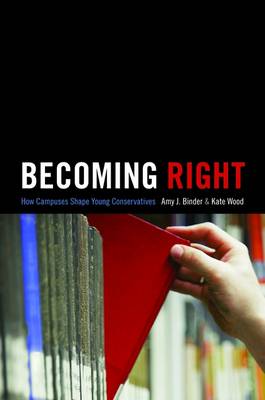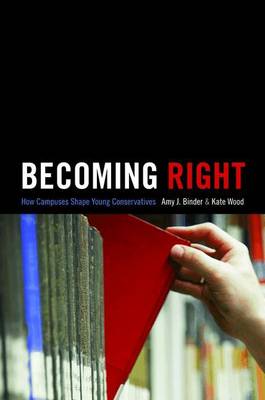Princeton Studies in Cultural Sociology
1 primary work • 3 total works
Book 54
Conservative pundits allege that the pervasive liberalism of America's colleges and universities has detrimental effects on undergraduates, most particularly right-leaning ones. Yet not enough attention has actually been paid to young conservatives to test these claims--until now. In Becoming Right, Amy Binder and Kate Wood carefully explore who conservative students are, and how their beliefs and political activism relate to their university experiences. Rich in interviews and insight, Becoming Right illustrates that the diverse conservative movement evolving among today's college students holds important implications for the direction of American politics.
This text compares two challenges made to American public school curricula in the 1980s and 1990s. It identifies striking similarities between proponents of Afrocentrism and creationism, accounts for their differential outcomes and draws conclusions for the study of culture, organizations and social movements. Amy Binder provides a brief history of both movements and then describes how their challenges played out in seven school districts. Despite their very different constituencies - inner-city African American cultural essentialists and predominately white suburban Christian conservatives - Afrocentrists and creationists had much in common. Both made similar arguments about oppression and their children's well-being, both faced scepticism from educators about their factual claims and both mounted their challenges through bureaucratic channels. In each case, challenged school systems were ultimately able to minimize or reject challengers' demands, but the process varied by case and type of challenge.
Binder finds that Afrocentrists were more successful in advancing their cause than were creationists because they appeared to offer a solution to the real problem of urban school failure, met with more administrative sympathy toward their complaints of historic exclusion, sought to alter lower-prestige curricula (history, not science) and faced opponents who lacked a legal remedy comparable to the rule of church-state separation invoked by creationism's opponents. Binder's analysis yields several lessons for social movements research, suggesting that researchers need to pay greater attention to how movements seek to influence bureaucratic decision making, often from within. It also demonstrates the benefits of examining discursive, structural and institutional factors in concert.
Binder finds that Afrocentrists were more successful in advancing their cause than were creationists because they appeared to offer a solution to the real problem of urban school failure, met with more administrative sympathy toward their complaints of historic exclusion, sought to alter lower-prestige curricula (history, not science) and faced opponents who lacked a legal remedy comparable to the rule of church-state separation invoked by creationism's opponents. Binder's analysis yields several lessons for social movements research, suggesting that researchers need to pay greater attention to how movements seek to influence bureaucratic decision making, often from within. It also demonstrates the benefits of examining discursive, structural and institutional factors in concert.
Becoming Right: How Campuses Shape Young Conservatives
by Amy J Binder and Kate Wood
Published 1 January 2012


